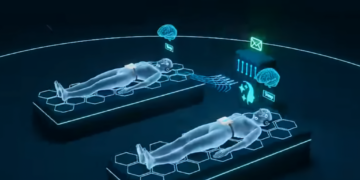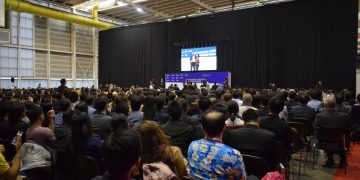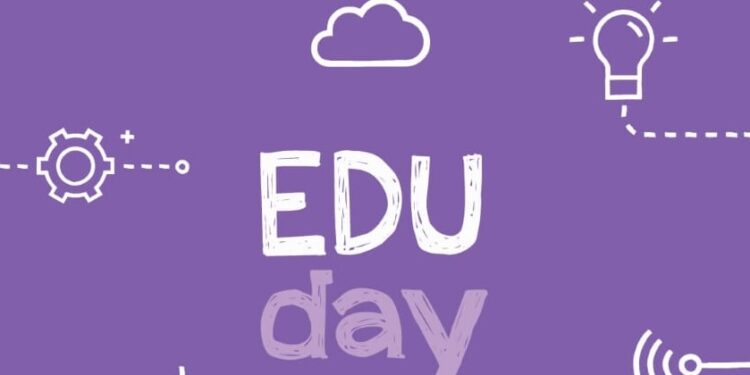Edu Day is Microsoft ‘s annual appointment dedicated to education: this year’s theme is digital evolution during the post-Coronavirus emergency.
Milan, May 12, 2020 – The health emergency, which has changed the habits of many families in our country, has made digital technology a fundamental tool for everyone not to stop and not to fall behind. In a few months, we have witnessed a revolution that has also changed the experience of teachers and students in a short time, who have had to rethink their approach to teaching and learning and apply their skills in a completely new scenario. It is in this context that the EDU DAY 2020, the Microsoft event dedicated to the world of School and University, is taking place. This year, in a special all-digital edition, the event saw a series of speeches by important representatives of the institutions of the world of Education, schools, universities, associations and companies who spoke about the challenges faced in this period and analyzed the opportunities for growth. Among them also the Minister of Education Lucia Azzolina and the Minister of University and Research Gaetano Manfredi who underlined the crucial role of new technologies and the effectiveness of public-private collaboration.
“At a time of health emergency when we had to close schools to safeguard the health of students, teachers and school staff and, with them, that of the whole country, technology has allowed us to shorten distances, to cultivate proximity, even if in a different way from the traditional one – said the Minister of Education, Lucia Azzolina – Present teaching can never be replaced by distance teaching. But the latter has been an important tool not to leave students alone. It was a didactics of proximity – she stressed – The schools were not completely ready but with an incredible run-up and thanks also to the funding provided by the State to buy tablets, PCs and connections, it arrived where it had not succeeded before. This heritage of skills, technological equipment, economic investment must not be lost. We must commit ourselves to transform this difficult moment into an opportunity for the future”.
“The emergency must be framed in the broader perspective of the digital transition process, a transition that the university was already experiencing and within which the emergency was an accelerator. Our challenge is the digital divide on which we are focusing a lot of investment. After the time of budgets, this is the time of vision. We cannot afford to have a country without a high bandwidth connection that reaches all households and is guaranteed for everyone if we want to be a democratic country that looks to the future and to innovation as a great lever for change. It is useless to dwell on sterile and sometimes only ideological oppositions between online presence and online education in the university, let’s look to the future. We need to imagine a university that continues to be a community in presence – the university is a place for the formation of ideas that are then transferred to students in a fast dynamic, students are a proactive element also for research – but that uses the potential offered by technologies and digital to become more inclusive and able to respond to changing needs in society, for a more competent and more democratic society. It is important not to neglect didactic innovation, which, thanks to new technologies – augmented reality and artificial intelligence, just to give a few examples – offer us the capacity for enhanced training not only in scientific disciplines but also in the humanities. Finally, we must not overlook the issue of continuing education, which those who work need, which cannot be carried out in the presence of those who work, but is indispensable for a new country that requires a system of training, innovation and competence” said Gaetano Manfredi, Minister of University and Research.
Today’s event is the first initiative of Microsoft Italy following the launch of the investment plan for the country Ambizione Italia #DigitalRestart, which sees the world of Education and digital skills as a first important pillar for the relaunch and growth of the country. The plan in fact foresees an important focus on the training of about 1.5 million people among students, professionals and unemployed people over the next three years.
The event was an opportunity to present the first results of “Emotion Revolution: Emotions and Distance Learning during the Covid-19 emergency”, a qualitative research by Microsoft Italia, carried out in collaboration with PerLAB and Wattajob, which takes a first picture of the emotional effects of the Coronavirus emergency in the school world, among teachers and students and aims to monitor its evolution until the end of the school year.
Here are the main insights that emerged in the first phase of the pandemic:
- In general, the Italian teachers interviewed perceive a substantially positive climate within their school community, which reaches a score of 2.9 on a scale from 1 to 5 and they note a good level of satisfaction (3.9 out of 5) with this new teaching method.
- Interest, determination and hope are the first three positive emotions felt by Italian teachers in the first months of the emergency; anxiety, tiredness and insecurity are the first three negative ones, felt in the peak phase of the pandemic.
- Uncertainty about the future school organization is the main source of stress for the teachers interviewed, followed by the achievement of the work-life balance and the management of workloads.
- The use of digital tools has made teachers more motivated (18%), more concentrated (9%) and generally more satisfied with their work (8%).
- The development of digital skills by students is the first concrete advantage of distance learning according to 15% of teachers, followed by the acquisition of greater autonomy in the learning phase, according to 9% of the sample. In fact, remote courses have enabled students, from the oldest to the youngest, to acquire computer skills – from participating in a virtual meeting to creating and sharing content online – much faster, triggering a value process that will help them on their future path.
- The lack of adequate tools and infrastructure – insufficient internet connection and lack of devices in some areas of the country – remains the main obstacle to the full implementation of online lessons, indicated by 23% of respondents, followed by the higher number of distractions students are subjected to at home, compared to the traditional classroom (14%).
“In such a delicate historical moment, Microsoft Italy has helped and is still helping schools and universities to quickly equip themselves with everything they need for distance learning. It is not just a matter of technology and tools, but of skills, connectivity and inclusiveness. This is why we have continued to work in an ecosystem with institutions, companies, associations and our partners in the area with the common goal of offering concrete help: from training for teachers to easy access to our Office 365 for Education platform with dedicated support; from synergy with operators to guarantee connectivity to that with OEMs to donate devices to those who do not have them, to working with associations to ensure that distance learning is also inclusive and accessible. The response from schools and universities has been incredible. We must seize this moment of emergency as an opportunity to promote change: schools and universities can integrate physical and digital for new educational models and offer young people more appropriate skills to face the work of the future and thus contribute to the digital growth of the country” commented Elvira Carzaniga, Director of the Education Division of Microsoft Italy.
Microsoft Italia’s contribution to the Digital School
In the first two months of the pandemic, 90,000 primary and secondary school teachers approached distance learning technologies. In fact, since the beginning of the emergency, Microsoft Italia has launched a series of measures aimed at helping schools of all levels to quickly equip themselves with the most appropriate digital tools and skills to provide distance learning and guarantee students continuity in their studies: in addition to Office365 Education, a package of programs and applications including Microsoft Teams, which have always been available free of charge, there is also a calendar of training webinars organized in collaboration with the Regional School Offices of 14 Italian regions to accompany the teaching staff in this transition to digital. Microsoft Italy has also set up a dedicated support service – which includes an email address [email protected] and two toll-free numbers 800 917919 / 800 694269 – to help teachers and professors master these tools. Finally, Microsoft Italia has created an online section on its website that contains a comprehensive guide to further support for school leaders, teachers, students and administrative staff together with a section dedicated to educational content on the Microsoft Educator Centre, such as Minecraft Education Edition, STEM lessons in collaboration for example with NASA and BBC.
Microsoft and CRUI together to accelerate the digital transformation of academia
The health emergency has also contributed to further accelerate the digital transformation of Italian universities. Thanks to a synergic work between Microsoft Italy and CRUI, the result of a Memorandum of Understanding lasting more than ten years, more than 70% of universities are delivering their courses in a completely digital way through Microsoft Teams, a hub that combines conversations, meetings and file sharing in a single application. Through Teams it has in fact been possible to recreate classrooms in which to follow the lessons, listening to and seeing your professor, interacting with him and collaborating with your classmates, asking questions and sharing content on the screen or in the integrated chat. Even the exams and graduation sessions did not stop, but took place in virtual mode. The collaboration with CRUI has been further consolidated within the Ambizione Italia project, which sees the two parties working together to promote innovation in university services, teaching and research, as well as supporting the diffusion of those digital skills that are essential to prepare young people to face the jobs of the future and that will be even more decisive in the restart phase.
EDU Day 2020 is part of the Memorandum of Understanding signed with the Ministry of Education aimed at the digitization of schools and the dissemination of digital culture and has also seen the participation of partners Acer, HP, Intel, Lenovo and Vodafone Business who have contributed to the story through the sharing of experiences, success stories and good practices of digital school.
You can find more information and materials about EDU Day at this onedrive link
Press release



































